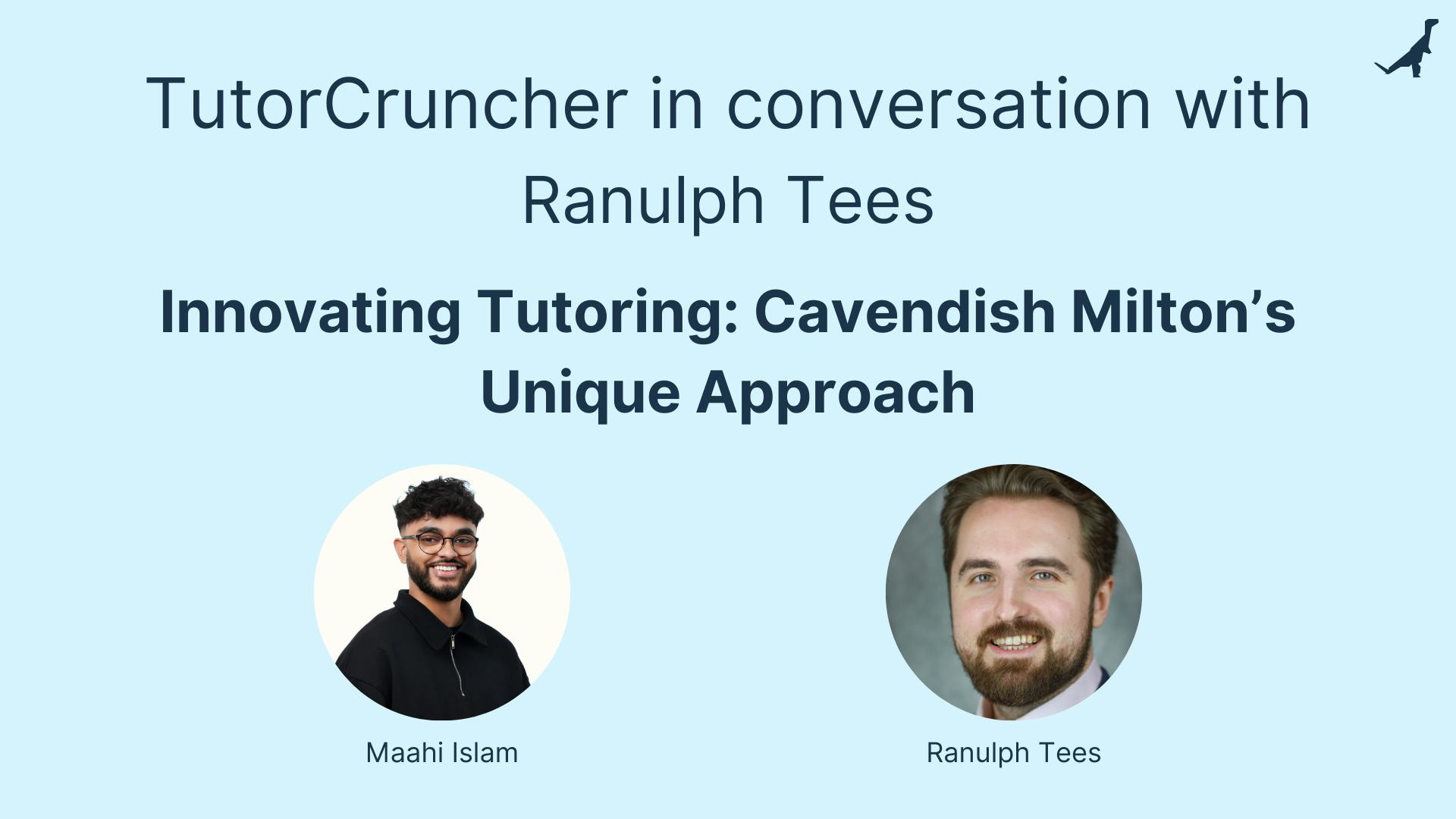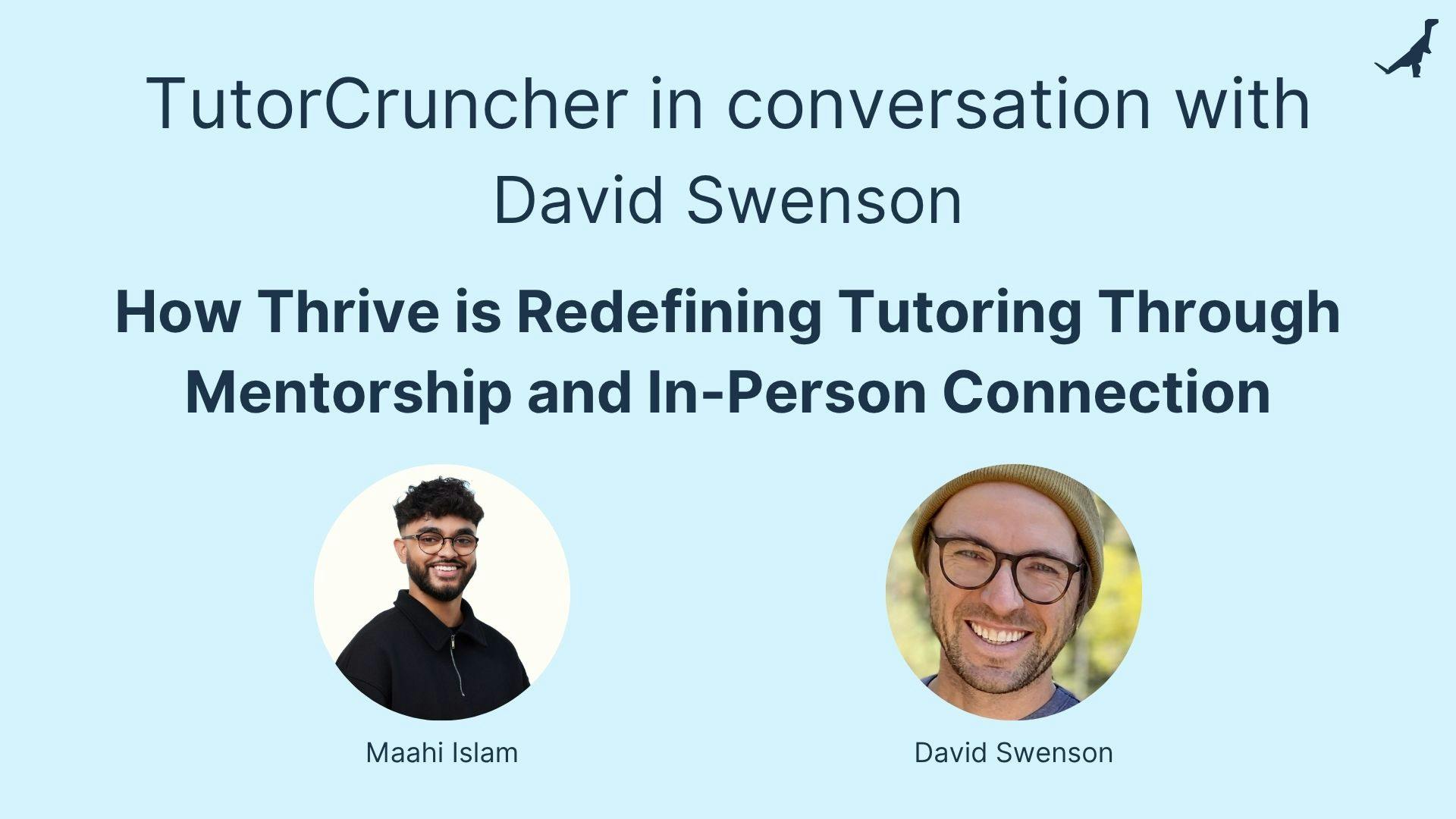How Cavendish Milton Was Founded
Cavendish Milton was founded in 2017/2018, inspired by Ranulph’s vision during his master’s at Oxford, which focused on educational assessment. For those unfamiliar, educational assessment involves researching the methodology behind assessment-based learning.
"Assessment for learning is all about how you can use assessment, not just for end-of-year exams, but throughout the teaching process to learn more about students."
Ranulph saw an opportunity to apply this in a tutoring setting, leveraging one-on-one instruction to not only identify a student’s overall strengths and weaknesses but also pinpoint specific areas for improvement.
"I found that if you actively apply this in a tutoring setting, one-to-one, you don’t just get the benefits of tutoring or assessment for learning—you get a multiplicative benefit from the two combined. It’s enough to take a C-standard student to an A-standard in roughly six months."
What Sets Cavendish Milton Apart?
Cavendish Milton recognised a significant demand in the 11+ market, which aligned with Ranulph’s expertise. After achieving success in this segment, the company expanded into A-Level, GCSE, Oxford entrance, and university entrance tutoring. This growth was driven by their unique approach to tutoring.
"Assessment-based learning is by far the key difference between us and other tutoring agencies. When you go to other agencies, there isn’t much that differentiates one from the other outside of tutor quality. The only way we can distinguish ourselves is by the way we interact from the start, throughout, and at the end of the process."
Cavendish Milton’s core service begins with an 11+ assessment, providing a detailed and effective way to understand a student’s learning profile.
"The assessment doesn’t just tell you what grade you get; it highlights your weaknesses in specific topics, the difficulty level where you start to struggle, and the question styles you’re best at and the ones you struggle with. We then use this information to brief the tutor on exactly how to teach the student for the best results."
Beyond assessments, Cavendish Milton distinguishes itself by focusing on its areas of expertise. The company invests heavily in producing educational content tailored to the 11+ market, an approach that has proven highly effective.
"We produce great content for our core services. Our assessments are structured in a very specific way, and my academic background allows me to determine what works and what doesn’t."
A Welfare-Focused Approach to Learning
A key aspect of Cavendish Milton’s philosophy is welfare-focused learning. The company understands that while academic success is important, it should never come at the cost of a child’s mental well-being. Ranulph has seen firsthand how overwhelming the pressure can be for young students, especially those preparing for rigorous entrance exams.
"We really want to reduce stress and pressure on students because high academic pressure can be overwhelming. There are 10 and 11-year-olds discussing their exams and offers. We advise our tutors to act as a pressure release valve rather than adding to the pressure."
This approach ensures that students feel supported rather than burdened. Tutors at Cavendish Milton are trained to recognise signs of burnout and adjust their teaching methods accordingly. By creating a positive and encouraging learning environment, students remain motivated and engaged, which ultimately leads to better results. The emphasis is not just on achieving top grades but also on fostering a love of learning and self-confidence in students.
"When students feel supported rather than stressed, they perform better. We focus on helping them build resilience, not just for exams but for their future academic and professional journeys."
Adapting to Challenges and the Shift to Hybrid Learning
Like many tutoring companies, Cavendish Milton had to adapt quickly when COVID-19 disrupted traditional in-person learning. The pandemic significantly accelerated the adoption of online tutoring.
"COVID was not so much a challenge as it was an opportunity. When schools closed, we had to suddenly handle a massive spike in demand, which is a good problem to have. But we had also conducted everything face-to-face until 2020, so shifting everything online while managing increased demand was a challenge."
As a result, Cavendish Milton evolved into a hybrid tutoring agency, balancing both in-person and online services, which opened new growth opportunities.
While online tutoring has become the preferred choice for many tutors and older students, parents of younger children—particularly those under 13—still value face-to-face learning. This balance of online and in-person tutoring allows Cavendish Milton to cater to different learning styles and client preferences.
"For students under 10 or those with shorter attention spans, online teaching can be challenging. That said, many 11+ students are highly attentive, and online learning works well for them."
One of the biggest shifts caused by this transition has been pricing. In-person tutoring requires additional costs for travel and logistics, which means both tutors and agencies must adjust their pricing structures.
"We have to charge more and pay tutors more for face-to-face tutoring, and that cost differential is quite significant."
Building a Strong Team of Tutors
Cavendish Milton places a high value on selecting and supporting its tutors, ensuring they align with the company’s approach to student welfare and learning. Rather than just recruiting tutors based on academic credentials, Ranulph focuses on finding those who understand the importance of a supportive, low-pressure teaching style.
"I make sure I’m always available for tutors who need assistance. Some tutors prefer a hands-off approach, simply wanting an agency to provide them with work. I can assess their effectiveness after three client feedback reports, and if they’re performing well, I’m happy to take a step back and provide support as needed. However, some tutors are younger and less experienced, so it’s important to provide training and be available for specific support."
Beyond technical teaching skills, Ranulph ensures that every tutor shares Cavendish Milton’s philosophy.
"During interviews, I make sure to impart our philosophy—what we help students with and how we approach tutoring. If a tutor doesn’t align with our ‘pressure release valve’ approach, we won’t proceed with them. We’ve had to turn tutors away who didn’t fit our core values."
This emphasis on tutor quality and alignment with the company’s values ensures that students receive not only expert academic guidance but also a supportive, confidence-boosting experience. By maintaining high standards for its tutors and focusing on student well-being, Cavendish Milton continues to stand out as a leader in the tutoring industry.
Key Takeaways
Cavendish Milton’s story highlights a few important lessons for tutoring businesses:
- Assessment-led tutoring works. Regular, targeted assessments create a clear plan for student progress—not just test scores.
- Student welfare comes first. Prioritising well-being helps students stay motivated and reduces burnout.
- Be adaptable. Embracing hybrid learning and adjusting services to client needs is key to growth.
- Values-aligned tutors matter. Hiring tutors who share your philosophy ensures a consistent, supportive learning experience.
Success comes from blending strong academics with care, flexibility and a clear vision.



